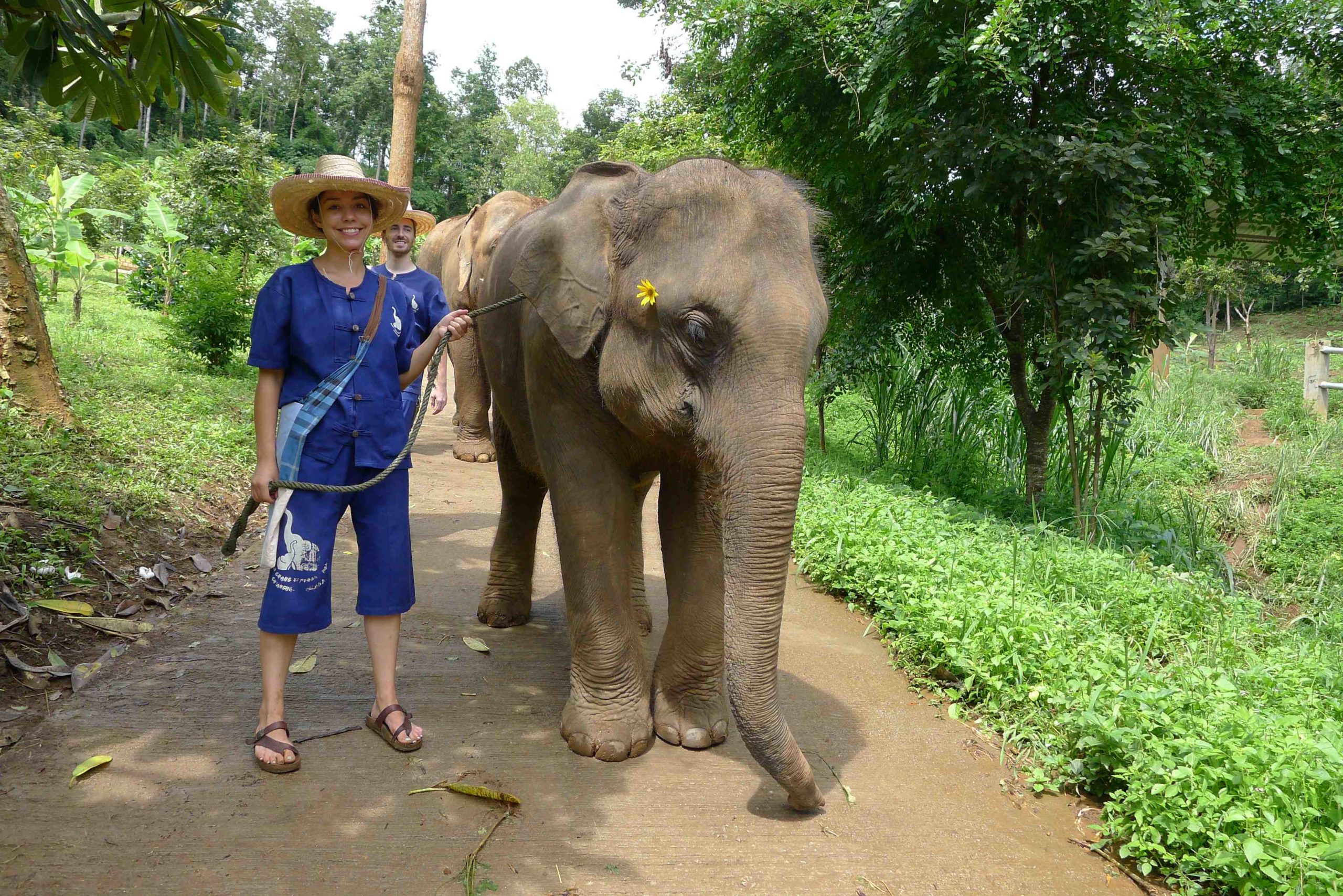For the past five months, we have been living out of two suitcases.
They are massive, black, Samsonite beauties, one slightly larger than the other. When we roll up to the new Airbnb of the month, we unpack the suitcases, nesting the smaller suitcase inside of its larger twin, and hide them away until our next move. We locate the choicest spots in the apartment for the items we reach for daily, trying our best to make someone else’s apartment our own. We turn the kitchen table into a desk, switch one chair out for another, claim our favorite coffee mugs, and finally, most importantly, connect to the WiFi.
We are what the world likes to call “digital nomads.” Eight months ago, my partner Dave Harbage and I began the process of becoming location independent. It started with an innocent Facebook message from Dave’s friend and fellow digital nomad, Michael Park, and quickly escalated into Hepatitis A vaccines and renting a couple containers in a storage warehouse. We didn’t need much convincing — we knew the experiential rewards of this decision would likely outweigh the challenges.
The opportunity to live and work abroad began to materialize well before the Facebook message. Eleven months ago, I joined the team at DuckDuckGo. Although DuckDuckGo’s HQ sits 30 minutes by train outside Philadelphia, the majority of the team is distributed across the world. When I first approached founder Gabriel Weinberg to discuss the implications of what going nomad would mean for DuckDuckGo, I received a reassuring message, “DuckDuckGo is remote to its core.” Around the same time, Dave and fellow Philadelphian Adam Kearney sold their music startup, which gave him a similar amount of flexibility.

Where Olivia works inside Midori.so’s Aoyama location in Tokyo. (Courtesy photo)
Our way of life, cultivated from our Philly roots, feels unique to us, but digital nomadism is a now well-established phenomenon. Frequenting coworking spaces from Thailand to Tokyo, it’s impossible to miss other nomads. Location independence continues to seduce more digital workers. The tech industry continues to build and improve tools enabling our global lifestyle. Mobile GPS, Airbnb, Lyft, Google Translate, Hopper, SkyScanner, WhatsApp, and even travel rewards credit cards, all cooperate to make our way of life easier. Not to mention our advantage as American citizens: Our chosen destinations generally grant us a visa on arrival.
Five months ago, we packed up our Philadelphia home and said final goodbyes to friends and family. We summoned a Lyft to PHL with our two black suitcases, en route to Phuket, Thailand. Being nomadic forces us to push personal boundaries and experiment with different ways of living and working. We adapt to new customs and fantasize about what it would be like to spend more than one or two months in any given location. Now, in Tokyo, we’ve found a new home-like place. I’ve found a coworking collective were I feel productive, creative, and inspired. Even so, building friendships that last beyond a specific time and place remains the most challenging aspect of being a nomad.
As digital nomads, we travel slowly.
It’s difficult to dispel our outsider aura. Every place we go has a term for us, “farang” or “gaijin,” for instance. Add in language differences and we face significant barriers. Still, we’ve found that interpersonal reservations dissolve through mutual fascination and focusing on the underpinnings of shared human experience. It’s through this attitude that we’ve made friends with a Tokyo chef who shares Dave’s taste for heavily peated scotch and a sneaker entrepreneur whom I met by chance in a dentist’s office in Phuket. We also seek out our American friends abroad, persuading them to join us to trek through Angkor Wat or explore remote Thai islands.
With so many opportunities ahead of us, it’s important for us to prioritize stability and recognize our limits. As glamorous as the digital nomad lifestyle appears, there are tradeoffs. Living 12 hours or more from our colleagues means we can often find ourselves signing off and closing our laptops as the sun is rising. Because of this, we don’t keep a checklist of must-see sights or experiences. We travel slowly and allow for maximum flexibility. We’ve learned to appreciate the day to day surprises without stressing about whether we’re missing out on something.
The truth is, the longer we spend away from our friends and family, the more difficult it becomes to stay away. We’re not sure when we will return to the States and settle in more permanently, unpack our suitcases and create our own WiFi SSID and password; but we’ve realized that living a digital nomad lifestyle doesn’t have to be binary.When we return, we will continue living with a nomadic perspective.
Join the conversation!
Find news, events, jobs and people who share your interests on Technical.ly's open community Slack

Philly daily roundup: East Market coworking; Temple's $2.5M engineering donation; WITS spring summit

Philly daily roundup: Jason Bannon leaves Ben Franklin; $26M for narcolepsy treatment; Philly Tech Calendar turns one

Philly daily roundup: Closed hospital into tech hub; Pew State of the City; PHL Open for Business

